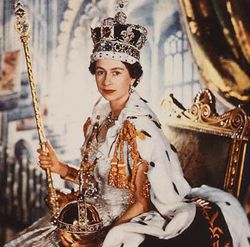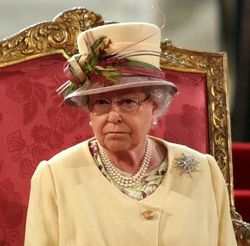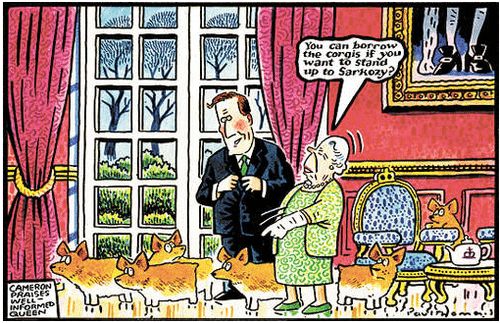
I was travelling on British Airways the other day, and really enjoyed their article in Business Life Magazine about how much the Queen costs the economy,
As a result, I thought it worth posting today as we’re about to head off on a four-day vacation in Britain to celebrate her sixty years on the throne …


… I normally spend less than sixty minutes on the throne, heh, heh.
Here’s a summary of the article, which makes for good reading I think.
What does the Queen cost the taxpayer?
Anti-monarchist group Republic says the Queen cost taxpayers £200 million in 2011. That is calculated on the basis of the amount she receives from the Civil List plus the cost of security for major events such as the Royal Wedding.
That means the Queen is good value as the real cost is less than zero thanks to the Queen's great- great- great-grandfather George III.
After losing Britain's colonies in the Americas, George III needed funds and offered to exchange the rents from the Crown Estate, Britain's biggest landowner, for the Civil List stipend.
Last year the Crown Estate raised revenues of more than £230m, leaving taxpayers in the black.
From next year, after the Civil List has been abolished, the Queen will instead receive a proportion of revenues from the Crown Estate in recognition of the funds it contributes to the Treasury's coffers.
Over the last five years, payments to the monarch have fallen by 19% in real terms.
Last year, she received a £32.1 million annual stipend from the Treasury via the Civil List. The payment equated to 51 pence for every British taxpayer, less than a third of the price of a cup of coffee.
This year the Civil List has been cut to £31 million, and will be abolished next year.
The Thames River Pageant on Sunday will cost the taxpayer nothing as it is funded by over £10 million of private donations and sponsorship, including a large chunk from JPMorgan.
Howard Archer, chief economist at consultancy HIS Global Insight, claims the Diamond Jubilee extra bank holiday will cost Britain £7 billion, or 0.5% of GDP … but he also accepts that this will be offset in part by a boost to the economy from spending on Diamond Jubilee street parties, as well as an increase in tourism.
Research by VisitBritain found the monarchy also generated £500 million from foreign tourists in 2009, out of a total spend of £4.6 billion in the UK.
Of the tourists who came to the country last year 5.8 million visited a castle, with London's royal palaces the top destinations.
More than 400,000 took in Buckingham Palace, earning £41.7 million for House of Windsor Inc, which the Queen used to maintain her royal houses rather than rely on money from taxpayers.
The monarchy has always been good news at the box-office, with British-made films The Queen and The King's Speech generating £49.3m and £88m respectively.
800 private companies from Rigby and Peller, which makes the Queen's bras, to Hunter, which makes her wellington boots, benefit from an association with the House of Windsor through a Royal Warrant.
The Royal Wedding was a showcase for British design with Sarah Burton, top designer at the Alexander McQueen label, catapulted into the limelight when she designed the wedding dress.
She is not the wealthiest person in Britain
The Queen is not the wealthiest person in Britain. The richest resident, according to the 2011 Sunday Times Rich List is Indian steel magnate Laskshmi Mittal, who has a fortune of £17.5 billion.
The Queen is not the richest woman as Kirsty Bertarelli has an estimated worth of £6.9 billion.
The Queen is not even as rich as J.K. Rowling, creator of the Harry Potter series.
She is the 257th richest person in the country, with assets of around £300 million (although the Sunday Times does leave out the Queen's most valuable assets: the Crown Estate is valued at up to £8 billion, with Buckingham Palace worth a further £3.5 billion, and the Royal Art collection worth billions more.
Nor is she the wealthiest monarch
That accolade goes to Hans Adam II, the ruler of Liechtenstein, who has an estimated worth of £3 billion, half of which comes from their ownership of LGT Bank.
Second richest monarch is Prince Albert von Thum und Taxis of Germany with £1.27 billion of assets in real estate, art and shares (and no royal duties as he’s not a reigning monarch)
Prince Albert Grimaldi II of Monaco also beats the Queen with £622 million of assets
The Queen’s lowly worth of £318 million seems minuscule by comparison, although it is double the worth of Queen Beatrix of the Netherlands whose £127 million is mainly comprised of holdings in Royal Dutch Shell
And she’s not the highest cost for a monarch either
The Queen is also good value for money when you compare her budget with those of other monarchs.
Annual budgets for maintaining European monarchs and heads of state 2010-2011:
- £33.1 million Queen Beatrix of The Netherlands
- £32.1 million Queen Elizabeth of Great Britain
- £23.4 million King Harald V of Norway
- £11.5 million King Albert II of Belgium
- £10.5 million Margrethe II of Denmark
- £10.2 million Carl XVI Gustaf of Sweden
- £7.43 million King Juan Carlos of Spain
- £7.2 million Grand Duke Henri of Luxembourg
... and then there's Nicolas Sarkozy, President of France who cost the French taxpayer £93 million last year.

Sources: The English Blog; Elysee Palace; Professor Herman Matthijs, Ghent University
Chris M Skinner
Chris Skinner is best known as an independent commentator on the financial markets through his blog, TheFinanser.com, as author of the bestselling book Digital Bank, and Chair of the European networking forum the Financial Services Club. He has been voted one of the most influential people in banking by The Financial Brand (as well as one of the best blogs), a FinTech Titan (Next Bank), one of the Fintech Leaders you need to follow (City AM, Deluxe and Jax Finance), as well as one of the Top 40 most influential people in financial technology by the Wall Street Journal's Financial News. To learn more click here...

